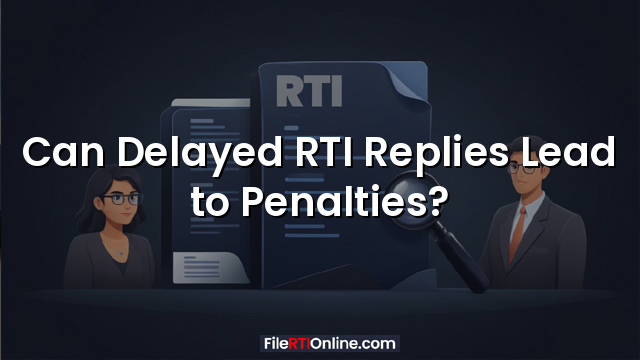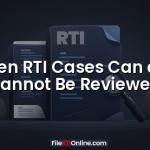A Case Study Where CIC Imposed ₹25,000 Penalty on a PIO for Non-Compliance
Timely response to RTI applications is not optional—it is a statutory duty. Under the RTI Act, Public Information Officers (PIOs) must supply information within 30 days, and when directed Central Information Commission (CIC), they must comply within the specific timeline set Commission.
A recent case involving the North Delhi Municipal Corporation (NDMC) shows how the CIC deals with unjustified delays, incomplete replies, and non-compliance with its own orders. In this matter, the Commission imposed a penalty of ₹25,000 on the PIO for failing to provide complete information even after being expressly directed to do so.
Background: RTI Application and Initial Non-Compliance
The appellant had filed an RTI application before NDMC seeking certain information.
The PIO provided only partial information.
When the matter reached the Central Information Commission on second appeal, the CIC issued a clear direction:
- Provide complete information within four weeks.
However, even after the CIC’s direction, the appellant received only partial and incomplete information—and that too two months after the deadline. Feeling aggrieved, the appellant filed a complaint with the Commission.
CIC Proceedings: Evaluating the Delay
During the hearing, the PIO argued that he had been transferred from the concerned ward and therefore could not comply with the Commission’s order.
The appellant clarified that:
- The PIO’s transfer order was issued after the four-week compliance period had already passed.
- This meant the PIO was still in charge when the CIC’s order was issued and when the deadline expired.
- Therefore, the transfer was not a valid justification for non-compliance.
The CIC examined the timeline and concluded that:
- The PIO had ignored the Commission’s directions.
- No reasonable cause was provided for the delay.
- The information supplied later was partial and misleading.
CIC’s Decision: Penalty for Unreasonable Delay
The CIC held that the PIO failed to provide any credible explanation for the delay or for the incomplete information supplied.
The Commission imposed:
- Penalty of ₹25,000 under Section 20(1) of the RTI Act.
This is the maximum penalty permissible for delay or malafide denial of information.
Additionally, the CIC directed the PIO to:
- Re-examine the RTI application,
- Go through the FAA’s order,
- Review the earlier CIC order,
- And furnish full and complete information without further delay.
What Citizens Can Learn: Delays Are Not Excused Under RTI
This case highlights key principles every RTI applicant should know:
1. CIC orders are binding
Failure to comply can lead to penalties under Section 20.
2. Transfer is not a valid excuse
If the PIO was in office when the order was issued, he remains accountable.
3. Partial or misleading information counts as non-compliance
The law expects full, accurate, and timely responses.
4. Penalties are imposed when delays are unjustified
The CIC frequently imposes penalties when officers ignore timelines or provide evasive replies.
Conclusion
The RTI Act is designed to ensure transparency, accountability, and timely access to information.
When PIOs fail in their statutory duties, the CIC has the power—and the responsibility—to take corrective action.
This case demonstrates that:
- Unreasonable delays are taken seriously,
- Transfer cannot justify non-compliance,
- Penalties can and will be imposed,
- And applicants have the right to escalate matters through complaints and appeals.
Understanding such cases empowers citizens to use RTI more effectively and ensures public authorities remain accountable.


